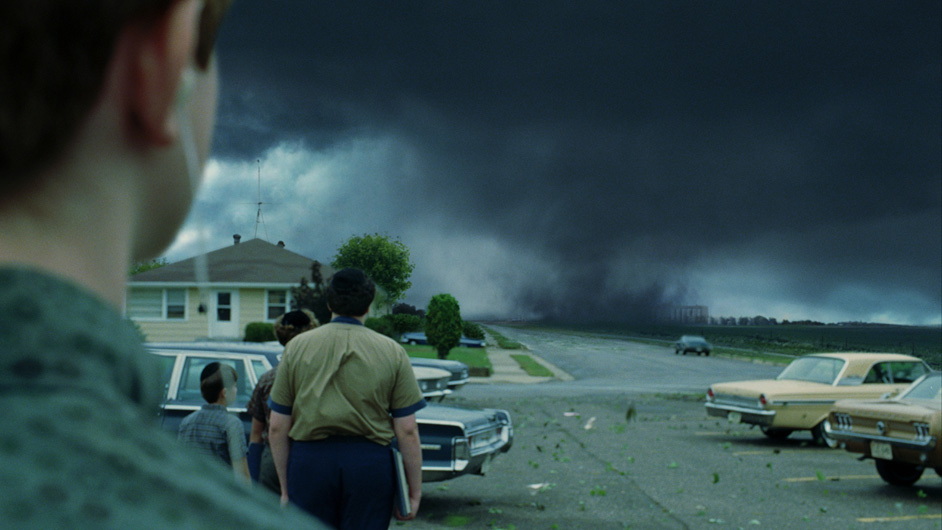Catie Stewart is a sophomore at the University of Alabama from Madison, Mississippi. She is double majoring in English and Religious Studies and minoring in Psychology. This post was originally written for Dr. Rollens’ course, REL 360: Popular Culture/Public Humanities.
I recently watched the film A Serious Man for REL 360, and as the plot unfolded, I found myself wondering: What is going on? The storyline is riddled with seemingly disastrous events that all lead up to the movie’s finish, which does not appear to actually resolve any sort of conflict. At first, my reaction to the ending was one of surprise and dissatisfaction; I couldn’t understand why the plot would lead up to this huge climax and then simply cut to the credits with no explanation. In fact, it seemed to me that the entire movie had no meaning at all and was simply a random representation of the main character’s experiences.
But, upon further examination, I discovered something interesting going on in the heart of the plot. Much like the story of Job in the Bible (an analogy that I am sure was no mistake on the creators’ parts), the main character Larry experiences a series of troubling events that lead him to question the meaning behind them. And as he wondered why he was being constantly subjected to these unfortunate experiences, so did I. Just like Larry, I was confused and in need of an explanation.
The movie, then, can be seen as a simply stated question: What does it all mean? Applied so vastly across different facets of life, this question is a constant concern for people. But what is the film saying when it applies this concern as its main theme? I suggest that it is making a statement about perspective. Throughout the story, viewers get to see the events unfold in what seems to be an unbiased manner; the movie highlights particular moments in Larry’s life and also shows how those moments affect the lives of people around him. The viewers can then make their own decisions about what the story really means.
When his brother Arthur tells Larry, for example, that he envies his life, Larry is exasperated. But his brother then mentions the fact that Larry has a job and a family; he has what Arthur does not. While Larry has chosen to focus heavily on the seemingly negative events that have been occurring throughout the film, Arthur focuses on the general quality of his brother’s life and the things that Larry takes for granted. Arthur’s perspective, then, is quite different than Larry’s, and the question of meaning arises again, perhaps in a different form: Does meaning depend only on perspective?
Another great example of this theme can be seen in the very beginning of the movie. In what first appears to be an unrelated anecdote to the larger story, a husband and wife are seen arguing about whether or not the man sitting in their house is a dybbuk (a spirit being in Jewish tradition). The wife believes that he is, and the husband believes that he is not. But the wife takes matters into her own hands and stabs the man, certain that she is correct. The man then makes a couple of strange statements, stands up, and walks out of the house and into the snowstorm. Neither the husband nor the wife know if he has died or not, so neither of them are proven correct. Both of them, however, think that their views still hold true. So while they do not know what happened to the man after he left their house, the meaning of the encounter and the assumption about the end result are simply a matter of perspective.
Much like Rabbi Scott’s example of the parking lot outside his building, which he uses to illustrate the value of different viewpoints, so much of what people make of the world around them depends on perspective. We can choose to place whatever meaning we want on an object or event, but we can never say that the object or event holds the same meaning for anyone else. Is the parking lot just cement and paint, or is it something more? It all depends on perspective.
